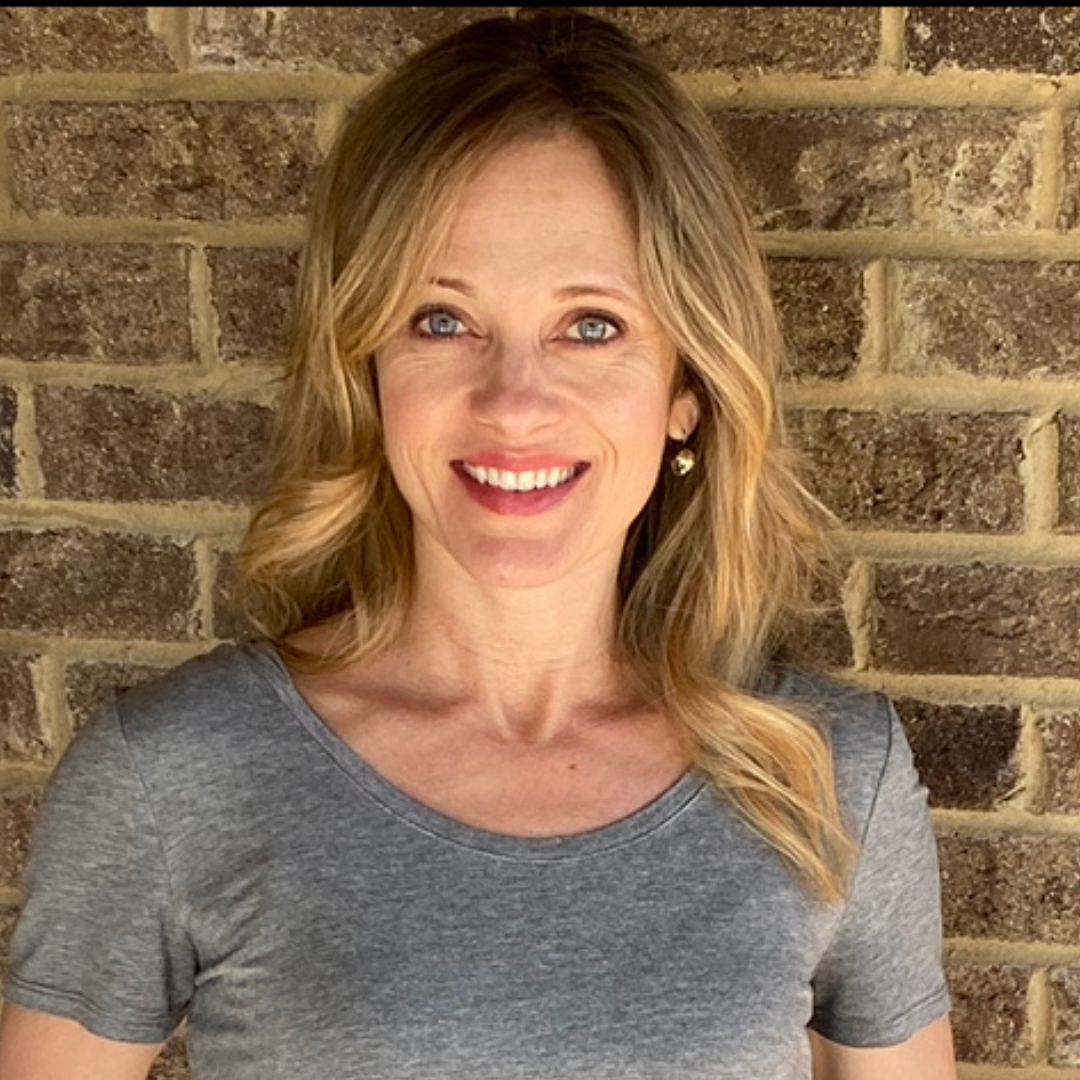Providing opportunities for play-based learning in kindergarten is essential. It lays the groundwork for development. Parents and educators should fully support play as the focus of the learning process. This keeps the emphasis on foundational skills kids need.
Kids learn best through play.
As an occupational therapist, one of the first things I learned in my pediatric courses: Play is a child’s occupation.
It’s their job. Their work!
But kids don’t know they’re working. Play is fun! It’s motivating.
Kids don’t realize they’re improving their development when they play. They don’t know the cognitive, motor, sensory, social and emotional benefits of their work!
What is Play-Based Learning?
Play-based learning focuses on play as the context for learning. Academic goals are addressed using play activities. Kids are encouraged to explore and problem solve through play. It strengthens executive functioning skills.
Play works on all of the components that a kiddo needs before reading and writing. Purposeful play uses developmentally appropriate activities that naturally encourage learning.
But, in addition to learning, play improves motor, sensory, social and emotional skills. All needed for school and life!
Play builds foundational skills for children. It uses many systems of the body and brain. It helps to focus on the processes of learning, rather than just the end product.
Play encourages kids to develop, learn and grow! It provides and encourages:
- Motivation
- Problem solving
- Executive function
- Independence
- Creativity
- Memory
- Social skills
- Communication skills
- Coping skills
- Fine motor skills
- Gross motor skills
- Sensory skills
- Brain growth

What Are the Benefits of Play-Based Kindergarten Programs?
In Kindergarten, play provides positive experiences that motivate kids to learn. Play with peers improves social and communication skills. It works on sharing and taking turns.
During play, kids have chances to deal with minor conflicts. This helps develop coping skills and cooperation. Being patient and kind. And compromising!
It gives kids a chance to independently think and interact with the environment and peers. Creative play centers stimulate growth in the brain.
Games, building sets, and puzzles improve problem solving. Blocks, beads, and art projects work on skills needed to hold and control a pencil.
Gross motor play outside or in a gym promotes sensory development and strength needed throughout the whole body. Many indoor or outdoor play activities support visual skills development for learning.
Additionally, play is fun and motivating for kids. Fun activities increase memory and focus.
Play-based learning has brain growth as the end outcome. It creates a foundation for learning. The academics will all fall into place when the child’s brain and body is ready for highly structured paper pencil tasks.
Play activities address skills needed for reading and writing… without expecting the kids to sit and read and write too soon and too frequently.
Learning to Write in Kindergarten
Think about learning to write. Writing is the end product. But several skills are needed for the task.
Before a student starts writing with a paper and pencil, they need:
- Core strength to sit with good posture
- Adequate sensory processing to focus and attend
- Shoulder (and core) stability to keep their arm still
- Bilateral skills to automatically hold the paper with the helper hand
- Hand skills to grasp the pencil
- In-hand manipulation skills to move the fingers
- Sensory / tactile awareness in the hands
- Motor feedback to maintain the grasp on the pencil (and use the right amount of pencil pressure)
- Visual motor skills to control the pencil
- Auditory skills to follow directions
- Visual tracking skills
- Crossing midline skills to form diagonals
- Visual perceptual skills to understand letter direction and orientation
These skills are all developed during play!! But not play with a screen / device!
Learning to Read in Kindergarten
The skills required for reading are even more complex! There’s pressure for kids to read too early before they’re developmentally ready.
(Check out How to Improve Reading with 15+ Visual Skills Activities for more info on what skills are needed from the body for reading. And, click on any of the skills in the above list for more info.)
Development in children is still occurring at the same rate, despite our advancing world. And despite our increase in academic expectations.
Some kids can have success when they jump into memorizing sight words. Others can hold the pencil perfectly and write on the lines.
But how fair is this to all the others whose eye muscles aren’t strong enough to focus on letters. Or for the kids who can’t even hold the pencil properly when they’re asked to start writing?!
My OT eyes see too many kids becoming frustrated in kindergarten and first grade in the schools. They struggle with tasks that could and should be easy and fun… when their bodies are ready for them!
Positive experiences in kindergarten are important. This happens during play and when having fun during learning! The skills needed for reading and writing can be addressed through play.
Research Supporting Play-Based Learning and Developmental Kindergarten
There is very little research evidence showing that having students learn to read earlier improves test scores and school performance. It’s actually the exact opposite.
There are endless research studies proving that pushing reading in kindergarten too early causes more harm in the long run.

Psychology Today: Early Academic Training Produces Long-Term Harm is one of them. This article references studies done on play-based vs. academically oriented early education classrooms.
It discusses the social and emotional effects of early academic training. Almost two decades ago I started to see little kindergarten and first grade students start to dislike school.
The stories have continued over the years. First graders being anxious about going to school. Kids from stable families and highly educated parents disliking the beginning of their education.
It’s heartbreaking! And unnecessary.
Another great publication is from Alliance for Childhood. This organization “advocates for policies and practices that support children’s healthy development, love of learning and joy in living.”
Defending the Early Years and Alliance for Childhood published Reading Instruction in Kindergarten: Little to Gain and Much to Lose.
This article discusses the Common Core State Standards and the push for early reading in Kindergarten vs. long term gains from play-based programs. It’s an excellent read!
Lastly, I like the post How play is making a comeback in kindergarten on The Hechinger Report. It’s a story that also appeared on NBC news.
Recent Testimonials of Play-Based Learning in Kindergarten, First and Second Grades!
I can’t post this article without sharing some recent real-life examples from teachers! There are many stories to share, but I’ll just pick a few!
Kindergarten
First, I had the pleasure of working with an amazing group kindergarten teachers. They shared something with me that they realized after a year of mostly virtual learning for their students.
It was one of the things that I had secretly hoped to see many teachers, administrators, parents, and districts realize… a silver lining from the pandemic.
During virtual learning, they initially felt so limited. They weren’t able to teach the same way as they had in person. So, as a group, they had to completely change their approach.
They were forced to slow down the academics; they backed off from pressure to get the students to read and write too early in the year.
Instead, they focused on using play based learning and projects throughout the year.
And guess what?!
At the end of the year, the kids were exactly where they needed to be academically! But the process involved more hands on play-based learning and fun projects.
First Grade
Another example involves first grade teachers. I delivered a program to a school district with 30 minute OT lessons for 8 weeks. At the beginning of the program, a screen was used to assess writing. But, we did not write again until the program was over!
Play activities and classroom exercises were shared each week. The teachers were given supplies and easy ways to incorporate the OT strategies into their day / learning centers.
After the program ended, the writing screen was used again. And guess what?!
The teachers that used the play and exercise activities the most (and even added their own) had the highest increase in scores on the writing screen.
I’m proud to have met and to work with these teachers! They all realize the importance of purposeful play as part of the learning process.
Second Grade
My third story is about a group of second grade classrooms. These kids only had 6 months of kindergarten, and an entire first grade year of virtual and/or hybrid school.
I’m sure many educators and parents worried that these kids were going to be behind. However, these kids did not have the pressure and push to read during the first two years of school.
Guess what the teachers observed? The teachers are amazed at how well and how easily the kids picked up on reading. The kids had a break from a strong academic program the previous year and a half.
They started reading with no problems… when their eyes, bodies, and brains were ready!
My post, How to Improve Reading with Visual Skills Activities, shares that children are developmentally ready to start reading between 7 and 9 years old! I wrote this post at the beginning of the pandemic.
It was my attempt to decrease worry in parents and educators – optimism that kids won’t get behind in reading or writing! In my eyes, I saw that we were gifted extra time. Time that gave opportunities for children to play and development.
The story of these second graders having success reading aligned with my hope! It’s been wonderful seeing these positive outcomes after the challenges that we’ve had.

Teachers, Parents, Caregivers, Sitters: Encourage Play Every Day! Please and Thank You!
To all of you out there encouraging play already… THANK YOU! I appreciate you!
Toddlers and preschoolers have numerous opportunities for play. Parents: if you’re looking for a preschool for your child, please find one that focuses on development!
If you’re a kindergarten teacher, my hope is that you are making daily time for play. The benefits are listed above. Your students will thank you!
Encourage play during lessons and in between lessons. Play inside and outside!
Play shouldn’t stop in kindergarten! I’m super excited every time I walk into a first, second, third, etc grade class and see play activities happening: playdoh, building sets, games, center activities, more games, etc!
Parents, don’t worry about your kiddo “not being ready for kindergarten.” Or seeming to be “behind” with reading and writing in kindergarten or first grade. It will all click when they are ready!
You can help them more if you minimize screen use (PLEASE!), and have them play to learn! Encourage independent play, play with you or their siblings, and/or with peers. Use both games with rules and unstructured play. And give them opportunities to work things out on their own.
*Please share this article with other parents, educators, professionals, etc!
Other posts that you might find helpful related to play-based learning
Best Educational Games and Toys for Kids
Skill Building Outdoor Games for Kids at School
Art Projects & Crafts for Kids – A Great Way to Support Learning and Development
Flexible Seating for the Classroom
How to Improve Reading Skills with Auditory Activities



0 Comments